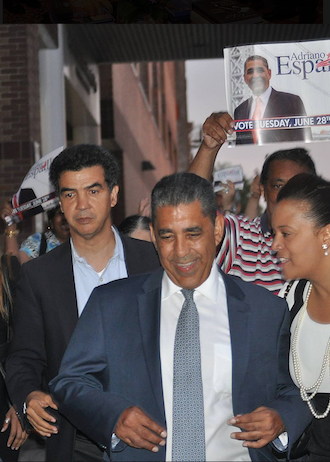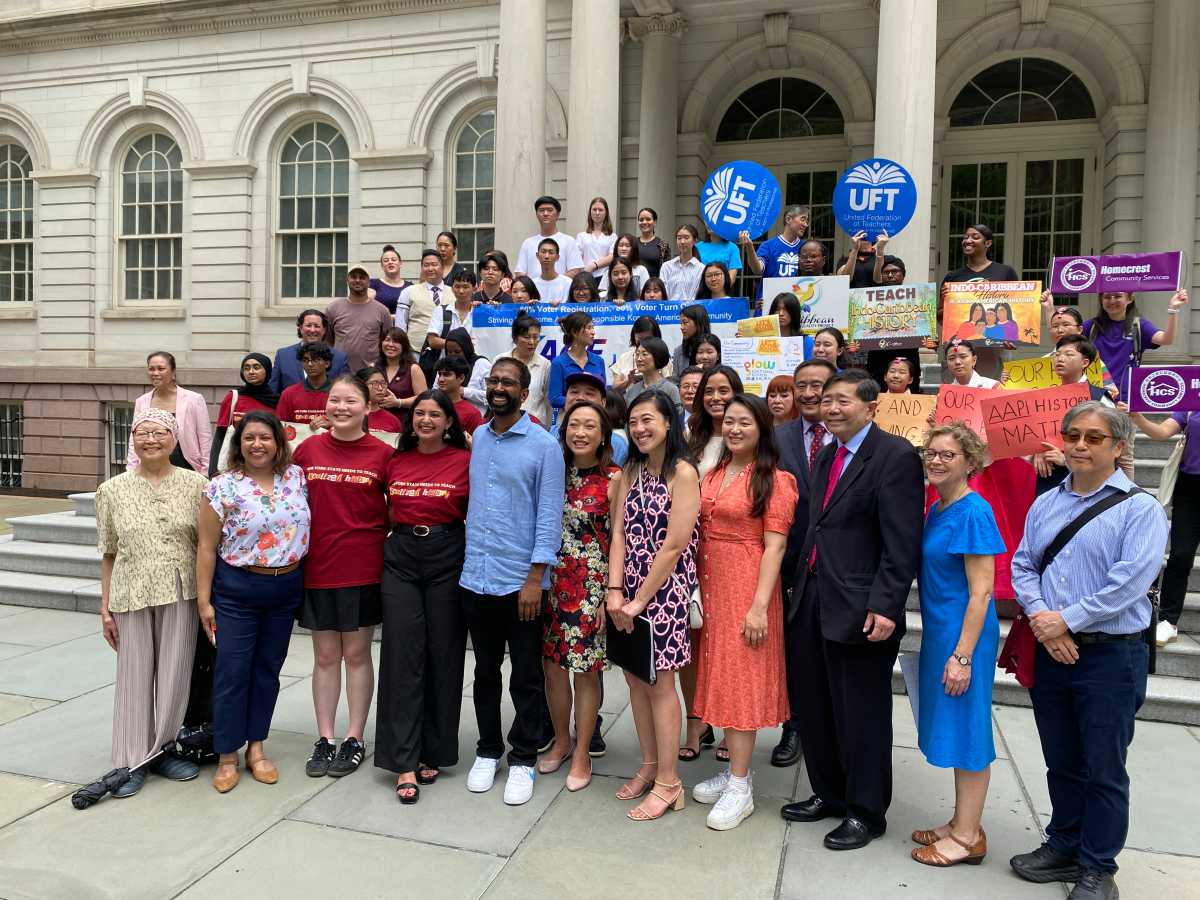
BY JACKSON CHEN | Incumbent Congressmembers Jerrold Nadler and Carolyn Maloney each sailed to easy Democratic primary victories on Tuesday, while an open race in the 13th District appears to have been won by State Senator Adriano Espaillat.
After US Representative Charles Rangel, a Harlem political institution for 45 years, decided to step down at the end of 2016, his district that includes Upper Manhattan and a portion of the Bronx was up for grabs. Espaillat, in a crowded field, faced off against Assemblymember Keith L. T. Wright, his principal opponent, who was endorsed by Rangel.
According to the New York State Board of Elections’ unofficial numbers, Espaillat tallied 15,735 votes or 36.65 percent, which should lead to him becoming the first Dominican-born member of Congress, with victory in the Democratic primary tantamount to election in November. Wright received 14,499 votes, or 33.77 percent, and on primary night refused to concede, noting that absentee ballots had not yet been counted but also suggesting that voter suppression might have occurred and perhaps should be investigated by the US Justice Department.
On Twitter on Wednesday afternoon, Espaillat, who ran unsuccessfully against Rangel in primaries in 2012 and 2014, posted a statement voicing his pride at winning as “an immigrant who was once undocumented.”
He added, “As the only candidate in this race who has ran in the last three primaries, and who in the last two campaigns lost by as few as 1,000 votes, I have a real understanding of how crucial it is that every single vote is counted. And I will not rest until every absentee and affidavit ballot is counted.”
Espaillat said he is confident that the final tally of all votes would not change the results.
The race was widely seen as a contest between the political clout of Harlem’s traditional black leadership and the emerging Dominican community centered further uptown in Manhattan.

In two landslide victories, incumbents Nadler and Maloney each secured roughly 90 percent of the votes in their districts.
Representing Manhattan’s East Side and portions of Queens and Brooklyn, Maloney easily won the 12th district with 13,389 votes or 88.91 percent, according to the BOE. Her challenger, Peter Lindner, never ran for political office and secured 1,435 votes, or 9.53 percent.
Maloney, a former member of the City Council, was first elected to the House in 1992.
In a statement posted on Twitter, Maloney thanked community leaders, grassroots activists, and volunteers who helped on her campaign, and noted the funding she had secured in Washington for issues including the Second Avenue Subway, the East Side Access program for Long Island Railroad commuters, Superstorm Sandy relief, and healthcare for 9/ 11 survivors and first responders.
Having gone 20 years unchallenged, Nadler faced opponent Mikhail Oliver Rosenberg, who only received 2,949 votes or 10.26 percent, according to the BOE’s unofficial tally. The victor easily won his party’s re-nomination to another term representing the 10th district, which covers Manhattan’s West Side and portions of Brooklyn, with 25,527 votes or 88.78 percent of the votes.

Rosenberg had run largely on opposition to Nadler’s vote in favor of the nuclear deal the Obama administration negotiated with Iran on behalf of leading world powers, including the UK, Russia, France, China, and Germany. That issue earned Rosenberg some high profile endorsements, including from the Daily News, the Observer, and Brooklyn Assemblymember Dov Hikind, a key player in the Orthodox Jewish community there. Those endorsements, in the end, counted for little.
Daniel Schwarz, Nadler’s campaign manager, said the congressmember focused on a breadth of issues ranging from national questions, including gun control and women’s and LGBT rights, to more local concerns, including transportation funding and support for 9/ 11 first responders’ health care.
“The congressman is very happy with the results,” Schwarz said. “It was a pretty emphatic win and an emphatic showing from voters of support.”

































